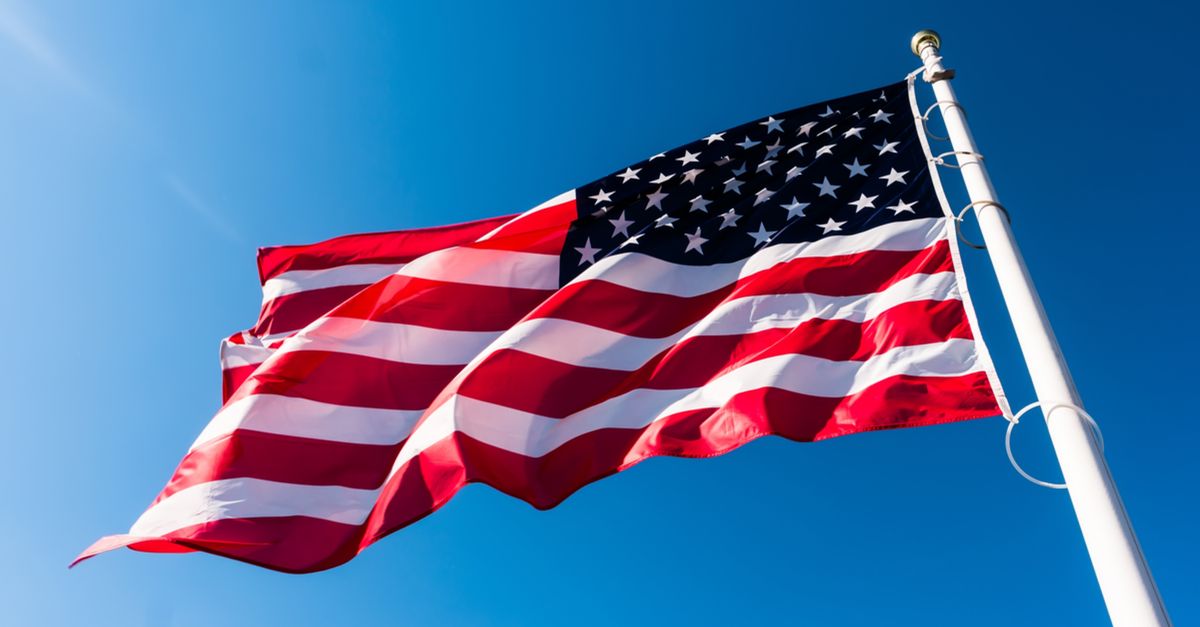On 23 January 2017, journalist Ken Klippenstein broke the news that President Donald Trump had declared 20 January 2017 to be a "National Day of Patriotic Devotion":
Trump issues proclamation designating 1/20/2017 "National Day of Patriotic Devotion" (seriously).
Source: https://t.co/jehtGjU7dW pic.twitter.com/nPEbBP1Gwp— Ken Klippenstein (@kenklippenstein) January 23, 2017
Although the document was among the first signed by the newly-inaugurated President Trump on 20 January 2017, it didn't informally appear in the Federal Register until three days later [PDF].
Several other news outlets followed suit and reported on the proclamation that day, although White House press secretary Sean Spicer had announced it via Twitter on 20 January 2017:
.@POTUS signing 3 things: Mattis waiver bill into law, formal nominations 2 Senate & proclamation for nat'l day of patriotism #Inauguration — Sean Spicer (@PressSec) January 20, 2017
A CNBC item (which observed that the day had "already passed" by the time it was widely reported) provided some information about declarations issued by previous presidents at the start of their terms:
Often, presidential proclamations of days of observance are made in advance so that people can make plans for how they want to recognize the day, whether it's through service or a moment of silence. Trump's instead designated a day that has already passed.
Presidents can declare a one-time holiday through executive order, but Congress holds the power to create annual federal holidays. In 2004, for example, George W. Bush issued an executive order for a national day of mourning following Ronald Reagan's death, shutting down the federal government for a day.
Trump's National Day of Patriotic Devotion shouldn't be confused with previous presidential proclamations with similar names.
The proclamation (reproduced in full below) was often framed as an atypical, worrisome, or unique action, and Klippenstein's article contended that the National Day of Patriotic Devotion declaration was one of more "troubling signs from the new administration":
The proclamation abounds with religious language, stating that, “we must maintain faith in our sacred values and heritage” and that there can be “no peace where people do not pray for it.” It denotes the date as “the year of our Lord two thousand seventeen.”
The document also includes assertions of American exceptionalism, stating, “There are no greater people than the American citizenry.”
But as The Hill pointed out, President Barack Obama declared his first inauguration day (20 January 2009) a "National Day of Renewal and Reconciliation," and an archived copy of that proclamation shows it described the occasion in a similarly religious language:
As I take the sacred oath of the highest office in the land, I am humbled by the responsibility placed upon my shoulders, renewed by the courage and decency of the American people, and fortified by my faith in an awesome God ... On this Inauguration Day, we are reminded that we are heirs to over two centuries of American democracy, and that this legacy is not simply a birthright — it is a glorious burden. Now it falls to us to come together as a people to carry it forward once more.
NOW, THEREFORE, I, BARACK OBAMA, President of the United States of America, by the authority vested in me by the Constitution and laws of the United States, do hereby proclaim January 20, 2009, a National Day of Renewal and Reconciliation, and call upon all of our citizens to serve one another and the common purpose of remaking this Nation for our new century.
IN WITNESS WHEREOF, I have hereunto set my hand this twentieth day of January, in the year of our Lord two thousand nine, and of the Independence of the United States of America the two hundred and thirty-third.
By comparison, President Trump's proclamation stated:
A new national pride stirs the American soul and inspires the American heart. We are one people, united by a common destiny and a shared purpose.
Freedom is the birthright of all Americans, and to preserve that freedom we must maintain faith in our sacred values and heritage.
Our Constitution is written on parchment, but it lives in the hearts of the American people.
There is no freedom where the people do not believe in it; no law where the people do not follow it; and no peace where the people do not pray for it. There are no greater people than the American citizenry, and as long as we believe in ourselves, and our country, there is nothing we cannot accomplish.
NOW, THEREFORE, I, DONALD J. TRUMP, President of the United States of America, by virtue of the authority vested in me by the Constitution and the laws of the United States, do hereby proclaim January 20, 2017, as National Day of Patriotic Devotion, in order to strengthen our bonds to each other and to our country -- and to renew the duties of Government to the people.
IN WITNESS WHEREOF, I have hereunto set my hand this twentieth day of January, in the year of our Lord two thousand seventeen, and of the Independence of the United States of America the two hundred and forty-first.
President Trump's "National Day of Patriotic Devotion" (formally entered into the Federal Register on 24 January 2017) didn't differ all that much from President Obama's 20 January 2009 "National Day of Renewal and Reconciliation" in as much as it mentioned faith, was issued concurrently with a first-term inauguration, used heavily patriotic language, and bore primarily symbolic weight.
